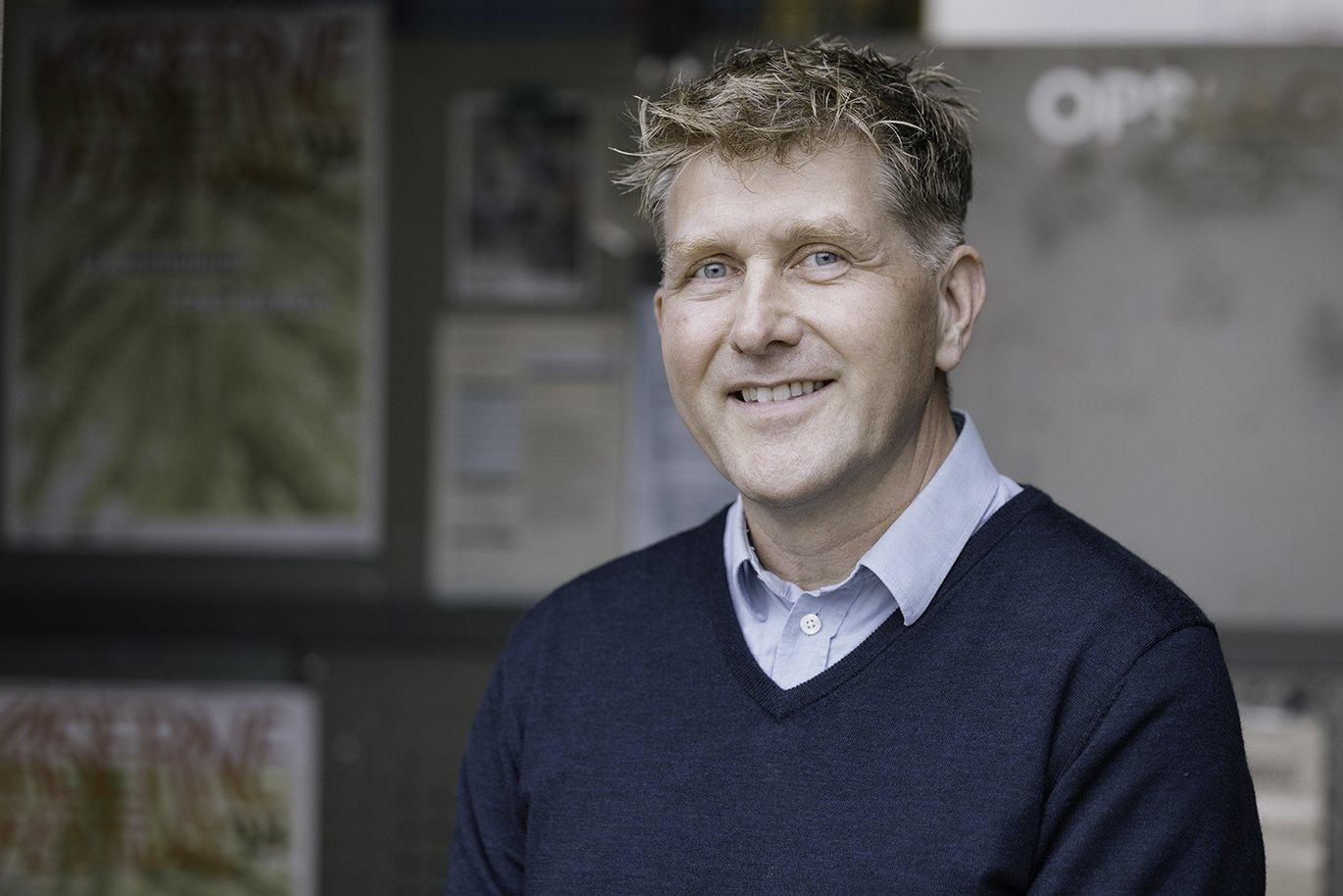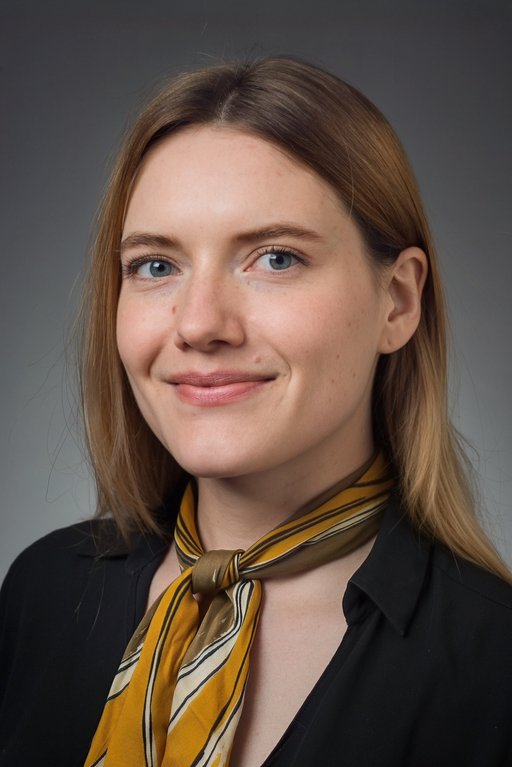New Basic Research Center to Study How Artificial Intelligence is Transforming Our Text Culture
Artificial intelligence is fundamentally changing the way we communicate. Therefore, a potential new basic research center at Aarhus University, called TEXT: Center for Contemporary Cultures of Text, aims to explore how AI is impacting our text culture.

"There is currently a huge revolution in the foundation of our text culture, and it deserves research into all aspects of what that means. Although machines have had some influence in the past, it is only in the last few years that something substantial has happened. We have increasingly started using technologies that are shaping our text culture," explains Mads Rosendahl Thomsen, Professor of Literary History, who along with Deputy Director and Associate Professor of Linguistics Rebekah Baglini, will investigate this issue at the planned basic research center TEXT: Center for Contemporary Cultures of Text (TEXT).

The Danish National Research Foundation has invited the Department of Communication and Culture to negotiate the establishment of a center with a grant of DKK 38 million over six years. The plan is for the center to be located in Nobelparken, staffed by about twenty employees from the spring of 2025. Here, Danish and international researchers with backgrounds in fields such as computational linguistics, cognitive science, literary studies, and educational science will collaborate to better understand the relationship between artificial intelligence and text culture.
"A wide spectrum of disciplines at Aarhus University has embraced this challenge and shown a willingness to work together. It is very gratifying that the Danish National Research Foundation is supporting this, giving us both backing and space to tackle the many challenges that will arise in the coming years," says Mads Rosendahl Thomsen.
Opportunities and Risks
Artificial intelligence, and particularly generative artificial intelligence—a form of AI that can generate text, images, and other content based on data—poses both opportunities and risks. This is especially true as it touches upon how we receive information, seek and process knowledge, explains Mads Rosendahl Thomsen and Rebekah Baglini.
It affects our text culture, which they describe as critical infrastructure that permeates society, and therefore, research in this area is essential, they argue.
"There are many risk factors. For example, it will become easier to produce misinformation, and we risk becoming worse at writing ourselves," says Mads Rosendahl Thomsen, mentioning that language models can be trained on data that may lead AI-generated content to misalign with broader Danish societal values.
He cites an example that many might have heard before, where a language model responded in a very un-Danish way to the relatively innocent question, "Can you leave a stroller outside a café?" The original ChatGPT said no, you should definitely not do that. Later models have improved, but from a global perspective, there are many who feel that the output from language models does not align with their view of reality,” he says.
Rebekah Baglini adds that it is important to have a national language model to account for cultural differences: "I believe it is crucial for several reasons to prioritize a Danish language model as part of national infrastructure. First, we can ensure more cultural and value-based adaptation to a particular cultural context. We can also have complete transparency about where the training data comes from."
Generative AI also offers many opportunities, and Mads Rosendahl Thomsen highlights a few examples such as automation tasks, efficient information searching, and specific ways to help people who have difficulty writing.
An Interdisciplinary Center
One of TEXT’s tasks will be to develop tools to minimize the risks posed by AI, while steering towards its possibilities. This will take place through interdisciplinary collaboration between both Danish and international researchers.
"We can only make a positive contribution to society if we work across disciplines to address the many facets of text culture," stresses Mads Rosendahl Thomsen.
Initially, TEXT’s researchers will examine the relationship between creativity and professional writing, explains Rebekah Brita Baglini. "The hope for this subproject is that it will in some way lay a foundation for some of the other projects in terms of defining what it means for a language model to be creative. We also need to ask what it means for a human to be creative and see whether those things align, and to what extent large language models seem to help or enable this," she explains.
TEXT has also partnered with the rhetorical consultancy firm Rhetor, which also addresses how professional writing is influenced by new technology, and with It-vest, an educational and research collaboration between the University of Southern Denmark, Aalborg University, and Aarhus University, which has a large network to draw upon.
Text is Also Technology
According to Mads Rosendahl Thomsen, the importance of text culture for our society cannot be overstated, simply because throughout history, text has helped organize societies, religions, learning, and education.
"The way we reflect on ourselves is shaped by how we have engaged with language, which has been built through text. Through text, we have a technology that enables us to be more sophisticated than if we only had an oral culture. It is hugely significant for society. It’s like the air we breathe. The moment it changes, that’s when you become aware of it,” he says.
Rebekah Baglini agrees. She understands text as technology that should not be taken for granted. "Text is not just infrastructure; it is, in itself, a technology. As a linguist, I have worked with languages that did not have a written culturehave a primarily oral linguistic tradition. IThese are not, of course, major global languages, but it's not a given that we have a written form of a language," she states.
Mads Rosendahl Thomsen believes there is a clear "before and after" when it comes to AI's role in our text culture. "If I had pitched the idea to the Danish National Research Foundation three years ago, I would have needed to spend a bit more time explaining why large language models and generative AI could be of interest. Now it’s obvious—it’s being used immensely. It’s irreversible, because we will not go back to a time before language models. I really think there is a significant before and after, and we need to explore it."
About the Danish National Research Foundation
The Danish National Research Foundation is an independent foundation established by the Danish Parliament in 1991.
The foundation funds excellent basic research at the highest international level across all research areas to strengthen the development of Danish research.
Read more here: https://dg.dk
Contact
Mads Rosendahl Thomsen, professor comparative literature
Department of Comparative Literature and Rhetoric
School of Communication and Culture, Aarhus University
Email: madsrt@cc.au.dk
Phone: +45 31141419
Rebekah Brita Baglini, associate professor linguistics
Department of Linguistics, Cognitive Science and Semiotics
School of Communication and Culture, Aarhus University
Email: rbkh@cc.au.dk
